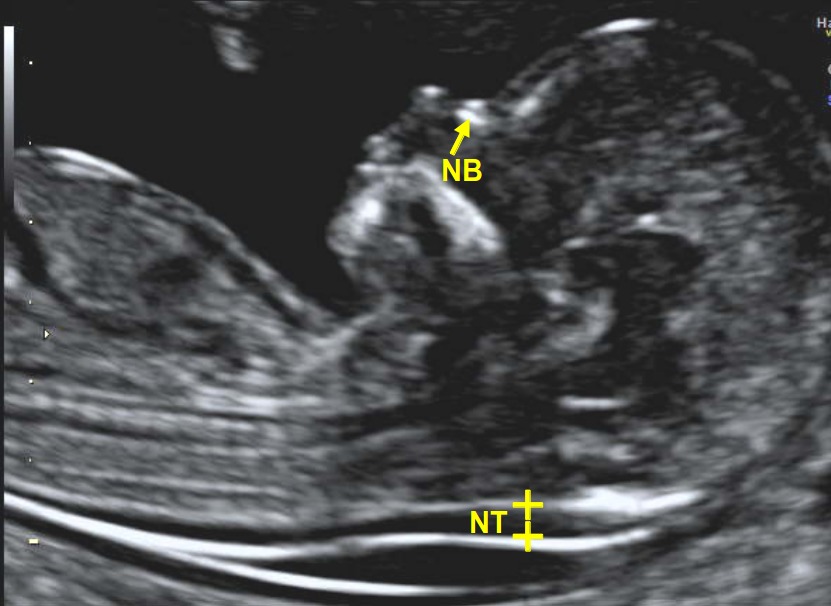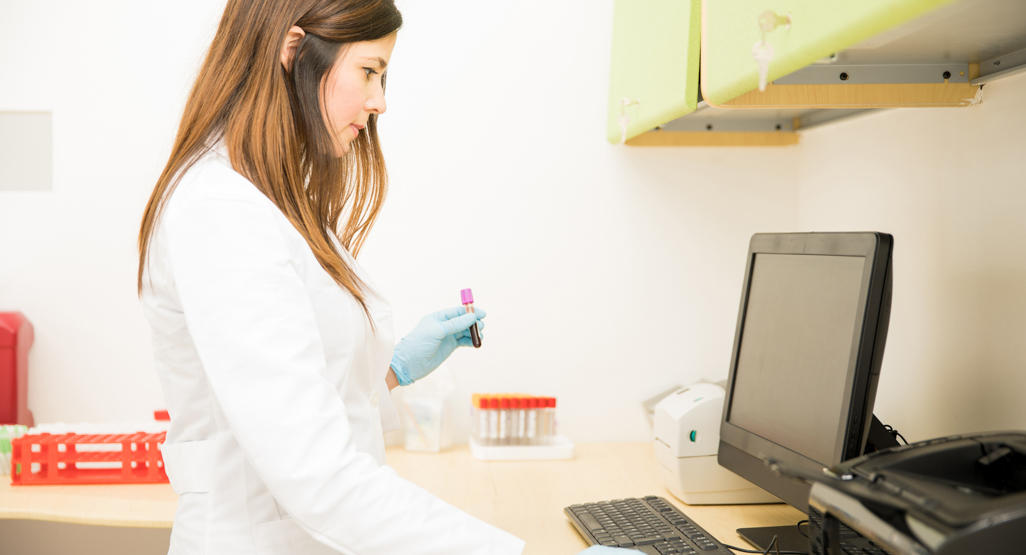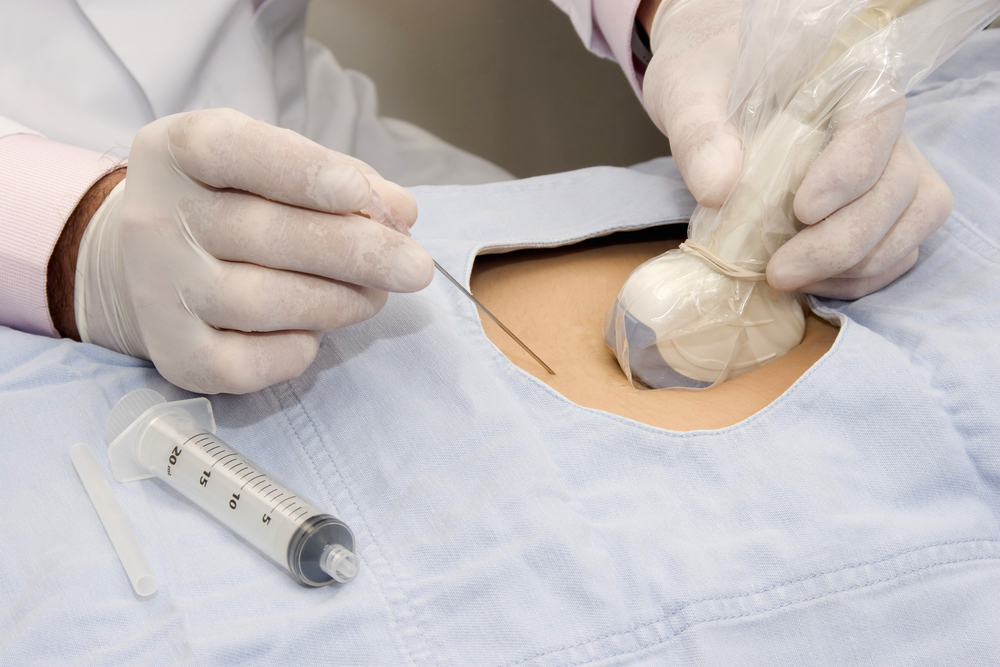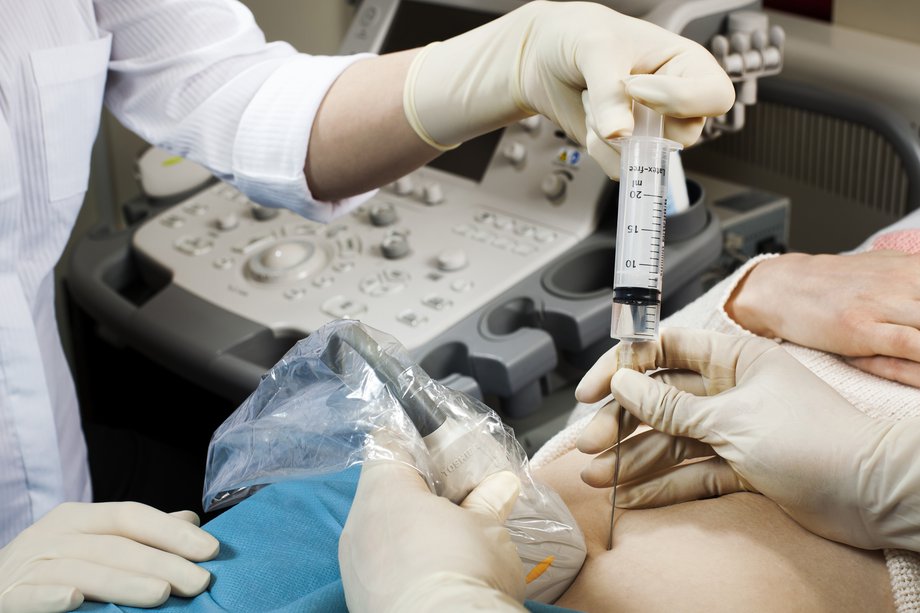In this post, we’re going to talk about all of the different medical checkups and tests that you can get when you’re pregnant.
Finding out that you’re pregnant

How do you know that you’re pregnant? Now the most comfortable way of doing it is with a urine test at home. There are simple kits that you can buy at each pharmacy.
What these tests do is they measure the number of fetal proteins in your blood which is released from the placenta when you’re pregnant. Now they catch above a certain amount of protein. And so if your test is negative what you’re doing it especially when you’re about to get your period it might be falsely negative and you might still be pregnant.
The test will almost definitely be positive. About a week after you’re supposed to get in your period. Now pregnancy tests can also be done with blood tests which measure for the same hormone. But they’re a little bit more sensitive meaning that if the level of hormone fetal hormone in your blood is a little bit lower it will also know that you’re pregnant.
Now the last way and the best way of knowing that you’re pregnant is with an ultrasound of actually seeing the fetus growing inside of the uterus. Now, this can be done only a few weeks after the next period that you missed was supposed to come. It’s important for me to mention the point of the ultrasound because not all chemical pregnancies become ultrasound pregnancies that you then see or clinical pregnancies as they’re called. So even if you have positive results make sure that you go see the baby and the beating heart inside your uterus before you get too excited.
Non-invasive prenatal screening

The first test that I want to talk about is called noninvasive prenatal screening. Now it’s a rather new test that came on the market only a few years ago but because of this, it’s quite expensive.
Noninvasive prenatal screening looks for fragments of the baby’s DNA that are circulating in the mother’s bloodstream. Now gives you the probability that the baby can have one of the genetic diseases but it’s not a definite diagnosis. So might be that they don’t catch a disease that the baby might have. This test can be performed quite early during pregnancy which is one of the main advantages of the test. You can have this test done when you’re only nine weeks pregnant. It’s done with a simple blood test.
Now, how important is it for you to do this test. It depends if you’re if your baby is predisposed to have some kind of genetic disease and you want to catch that disease early. Then this might be a good test for you to do. It could also give you the early signs and tell you what gender the baby is in a lot of cases.
However, if this is your first pregnancy and you’re not disposed of for any genetic diseases it’s an expensive test and it might be something that you don’t want to do.
One important note about this test is that if you have twins triplets or more this test is not recommended.
Nuchal Translucency

In some babies, with genetic abnormalities, fluid tends to accumulate at the back of the neck. In this nuchal fold. So it’s a little bit bigger that increases the probability that your baby has a genetic abnormality.
Now it’s important to note that this test is not a diagnostic test. It’s a screening test which gives you a probability. This means that if the nuchal fold is a little bit bigger than normal that doesn’t mean that your baby has a genetic abnormality. If it’s normal it also doesn’t mean for sure that the baby does not have a genetic abnormality it just increases the chance.
And when you incorporate this test with other results it gives you more of a better picture to know if there are any problems with the child or not a normal measurement is when the nuchal fold is under 12 millimeters in with. Now, this is not a binary test it’s not it normal or not normal. There’s a little bit of a range and a little bit more than normal can be “OK” too.
How important is it for you to do this test especially if this is your first pregnancy. I highly recommend doing this test taking the efforts and going to get this done. It’s a rather noninvasive just an ultrasound and it can give you a good picture mixed in with other tests or if there’s any type of abnormality or anything to be worried about.
Combined screening

Now, this is a simple blood test which measures two main hormones that are very important to know. The first is a placental hormone called Pap A. And the second one is the same fetal hormone Beta hCG.
Now the levels of these hormones when combined with another a number of other results just like the nuchal translucency test and another blood test that you will do will give a very accurate reading as to if there’s any type of genetic abnormality or any problems with the pregnancy.
One of the things to note here that if the placental hormone is a little bit high that can be “OK” but it also can be a disposition for feeling greater amounts of nausea. So if that’s high you could just keep that in mind that it might be causing the nauseous feelings both in the morning and all day.
How important is this test to do? This is also, in my opinion, a very important test because it’s rather simple to do. It’s not expensive. And when you mix it in with the other results you get a very high probability that the test can be confirmed or deny that the baby can have any type of abnormality. Now it’s not a diagnostic test. We’re only dealing with probability. So if there are abnormal results there’s no reason to panic especially if there are isolated abnormal results meaning that one of the levels of protein is a little bit high and all the other results are normal. This can be perfectly fine in its statistic meaning that in a certain percentage of women it will happen anyway.
Second-trimester screening (quad screening)

This is also a blood test measuring a certain amount of hormones and proteins in your blood and this can give probability as to how the pregnancy is progressing or if there is a probable chance that there’s some sort of some of the abnormality.
The four proteins measured in this test are the same beta hCG. Alpha fetal protein Escorial which is the type of estrogen that happens that it increases during pregnancy. Alpha fetal protein which is one of the proteins that we measure during this test. Can you give us an indication about the development of the nervous system if it’s a little bit high. We might have a suspicion that there could be a neural tube defect or problem with the development of the nervous system. So this can be something that could warrant further checkups if it’s a little bit low. It can also make us suspect that there’s some sort of genetic abnormality happening.
How accurate is this test? So if a baby has a genetic abnormality it will be caught in 80 to 85 percent of the cases. That means anywhere from 15 to 20 percent of babies have babies who have a genetic abnormality. We won’t know about through these tests. If you receive results from this test that one of the levels of the proteins is a little bit high. How likely is it that your baby has an abnormality only about 1 to 3 percent.
So again if this test brings results that are a little bit higher low or abnormal there’s really no reason to stress just yet and it might just work that you get further tests to find out if you’re carrying twins or triplets and the protein levels are likely to fall outside of the normal range. So make sure that you discuss with your gynecologist the levels of proteins especially if you’re having twins or triplets
if there’s an abnormal result, this is also something that should be should be discussed with the gynecologist and together you can plan what future tests you want to do.
Level 2 UltraSound

A level 2 ultrasound can be performed anywhere between week 18 to 22. Now when the blood tests were checking for chemical signs that the pregnancy is progressing normally.
In this ultrasound test, we’re going to check the anatomical signs that everything is progressing just like it should. The technician will check all of the systems of the body including the digestive system, the heart, the urinary system, and even the structures of the brain.
This is one of the most exciting checkups because if you haven’t seen it already you’ll be able to see the heartbeat of your baby. This is one of the most exciting parts of the checkups in my opinion.
They’ll even see the blood through blood flow through numerous vessels of the body to make sure everything is flowing and circulating properly.
Let’s just quickly mention a few of the abnormalities that the doctors or technicians are looking for during this ultrasound examination.
Now again just like the blood tests it only gives us a probability that there is some sort of abnormality with the baby that’s developing. It does not say anything certainly. And in fact, in 20 percent of babies, any type of abnormality can be found. So if you see something that’s isolated or that they’re concerned about this is not the reason for concern just yet.
One of the abnormalities that the doctor or technician will be looking for can be enlarged ventricles of the brain. I really want to encourage you during this time and this checkup to not be shy and ask as many questions as you can.
Make sure that you understand the picture that the technician or the doctor seeing and if you’re lucky you might even catch your baby sucking its thumb or waving hi at you with this hand.
There’s a number of new ultrasound machines. This is also something new in the last couple of years which can generate a 3D image of what the baby looks like. Now it’s not completely accurate. So don’t get too worked up if you don’t like the way it looks or you’re not sure which parent the baby is more similar to.
Lastly, during this exam, the technician or the doctor will be able to tell the gender of the baby. Now if you want to know that’s great. And make sure that you ask. But if you don’t want to know and make sure that you say so ahead of time so that the doctor doesn’t make a mistake and reveal to the gender without wanting to know.
Amniocentesis

We’re going to start talking about a few more invasive tests. The first test that I want to talk about is called amniocentesis or amnio for short. Now inside the sack that the baby is developing and there is fluid called amniotic fluid. The doctor wants to get a piece of genetic material that is floating around in this fluid and he does so by stick a needle through the stomach into the fluid and obtaining some of that fluid to check.
Now, this test is invasive and it comes with a few risks. It can cause spontaneous abortion. In about half a percent of the people that do the test. So it’s definitely not recommended for everyone. Who gets referred to do the amnio, the main reasons for getting referred to do an amniocentesis are if they are one of the warning signs from the previous checks that we talked about. If your family has a genetic disease that you want to check to see if the baby has, if you had an infection specifically type of mono. This can also get to the baby so an amnio can check to see if they are infected. Lastly, if you had a previous birth with a defect or some sort of genetic disease that could also be a reason to do an Amnio.
This test should be done between 16 to 20 weeks of pregnancy. And it’s done as I mentioned by putting a needle through the stomach into the amniotic fluid. It may hurt a little bit but usually, they put some sort of anesthesia around the area where the needle goes in. So it doesn’t hurt too bad. It to be a good idea to bring someone with you to this checkup for support. It’s not something that’s pleasant to go through alone.
Chorionic Villus Sampling (CVS)

Now, this test can be done earlier during pregnancy. It can be done anywhere from 10 to 13 weeks which is a major advantage if you’re looking for genetic disease early on in the pregnancy.
Second of all this test is considered a little bit safer than amniocentesis as well. There are still complications. A little bit lower than the amount that there are from an avenue. There are also disadvantages to this test as well. However, because it’s done so early it might miss some of the warning signs that you’ve got in the screening tests. And so you might not know to do it this early.
It also doesn’t usually catch infections or abnormalities with the development of the nervous system. Those are two major disadvantages of this test. However, it’s just as good for testing genetic abnormalities.
So if there’s a predisposition for some sort of genetic disease you might be referred to do a SEVIS. How is this test done? Once again, a needle is put either through the vaginal canal or through the stomach. And some of the chorionic violists which is part of the placenta is taken for the Cheka. It may cause a little bit of discomfort similar to the Amnio and this discomfort can stay a few days after the check as well.
Lastly, there might be a little bit of bleeding especially if the sample is taken through the birth canal. If the bleeding continues from more than three days. Notify your doctor and it should only be a little bit of bleeding. So if it’s also more amounts. This is also something that you should contact your doctor.
Genetic Diseases and Chromosomal Abnormalities

Genetic material is like the computer code that contains the plans for our whole body. Each cell in our body contains the exact same identical genetic material.
The difference between different types of cells is what part of that plan is active telling the cell how to behave or what proteins to create or how to act. Now all of this genetic material is packed up into 46 fragments inside each cell. Each of these fragments are called chromosomes and the chromosomes are paired. Meaning that there are one side and another side that formed together like a puzzle.
Now when we’re born the sperm and the egg come together to complete that puzzle. One of them brings 23 chromosomes and the other brings 23 chromosomes and then they mix and match and finish that puzzle to create a new full cell with 46 chromosomes. These 46 chromosomes are 23 identical pairs.
Now genetic abnormalities happen if there are not 23 identical pairs. For example, if one of the parents instead of giving 23 chromosomes actually gives 24 instead. Let’s say for example that chromosome number 21 appears twice. And then when the cells come together it will appear three times twice from one parent and one from the other parent. This is called Trisomy 21 and it’s more commonly known to as Down’s Syndrome. This is one of the genetic abnormalities that can happen.
Now the number one reason for spontaneous abortions especially early in pregnancy is genetic abnormalities. So this is something that with all the help of the tests that we talked about earlier we can try to detect as early and as soon as possible. These genetic abnormalities can usually cause a number of complications things that manifest themselves in the heart in the nervous system with the breathing. And most commonly they affect life expectancy as well.
Testing for GBS

Now, GBS is called Type B group B strep and it is a bacteria that is found often in your digestive system. Now from your digestive system, it can also make its way to the birth canal and this can be dangerous because it can affect the baby as it’s coming out of the birth canal. For example, if you have a C-section the baby won’t be at risk to be infected with GBS.
Having the bacteria itself is nothing dangerous for you as the mother. But it’s just important to know because when you give birth you want to take antibiotics and prevent the risk of the baby getting infected when they come out.
You should be tested for GBS at week 36. Don’t do it earlier than that. This is because the test for GBS is good for only five weeks. So let’s say you get tested at week 35 but then you give birth that week 41. Well if the test was negative then you can’t be sure that it’s also negative at week 41 that negative result is only good for five weeks.
What are the implications if it’s positive. Absolutely nothing other than the fact that you need to get antibiotics when you’re giving birth.
If you get antibiotics it significantly lowers the chance of your child of getting an infection as they come out of the birth canal. Now, these infections are quite dangerous so it is important to take these antibiotics. Most commonly they cause infections of the central nervous system and this can be very dangerous especially for a newborn baby. So make sure if your GPS is positive. Get the antibiotics as you’re giving birth.



